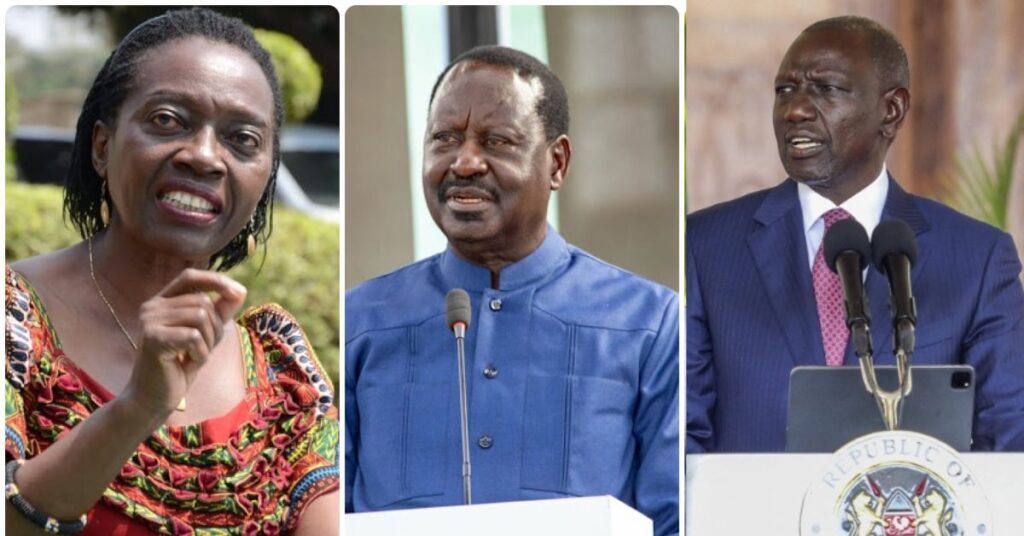Martha Karua Explains How Ruto’s Tactics Cornered Raila Odinga
In a candid revelation, Narc Kenya Party leader Martha Karua has illuminated the strategic political maneuvers that led former Prime Minister Raila Odinga into what she described as a meticulously set trap by President William Ruto.
These insights shed light on the intricate dynamics within Kenya’s political landscape and highlight the personal and strategic challenges faced by key political figures.
Karua explained that Raila Odinga, a pivotal opposition leader, had shifted his focus from active political opposition to campaigning for a prestigious seat on the African Union Commission (AUC).
This position required the endorsement of the Kenyan government, creating a situation where Odinga’s ambitions were at the mercy of government approval.
“Raila sort of withdrew to campaign for the AU seat for which he needs government backing. He has to be proposed by the government of Kenya and I think this is where the trap fell and you can see the timing of entering the government is the submission of his formal submission,” Karua stated.
The timing, as Karua emphasized, was critical. Raila’s pursuit of the AU seat coincided with a period when government support became indispensable, effectively laying a trap that neutralized his opposition role. By necessitating Odinga’s dependence on government backing, President Ruto ensured that a key opposition leader’s ambitions were tethered to the administration’s approval.
In a move framed as creating a broad-based government, President Ruto integrated several top minds from Odinga’s Orange Democratic Movement (ODM) into cabinet positions within the Kenya Kwanza government. Among these were ODM deputy leaders Ali Hassan Joho, Wycliffe Oparanya, National Assembly Minority Whip Opiyo Wandayi, and national chairman John Mbadi.
Reflecting on her own political journey, Karua drew parallels between Raila’s predicament and her resignation from President Kibaki’s government. “I think even within government, even if we had gone in together and something that is totally contrary to one’s belief happens, it is possible to say enough is enough. I resigned from Kibaki’s government. I didn’t have to call him names, I just went to the backbench and enjoyed myself with less money, without power and privileges,” she remarked.

Karua’s resignation, a significant event in Kenyan politics, was driven by her principles and clear stance against policies she did not support. This act of stepping down, she elaborated, was about integrity and staying true to one’s beliefs rather than titles or power.
“What we must understand as leaders, is leadership is not a title deed which you acquire and you wave at people saying this is for five years. It can be recalled by people who bestowed that privilege upon you. Also, events can make you exit earlier,” Karua emphasized.
Her comments serve as a poignant reminder of the transient nature of political power and the importance of accountability to the electorate. “People must get used to a vocabulary called resignation,” Karua asserted, underlining the necessity for leaders to prioritize the public good over personal ambition.
Karua, a staunch advocate for the rule of law, has since abandoned the Azimio la Umoja coalition led by Raila Odinga and has not yet announced her next political move.
In Other News: Kenya’s Currency Gets A Security Upgrade: Four Key Changes Announced
Martha Karua Explains How Ruto’s Tactics Cornered Raila Odinga

